Antioxidants
We often hear other people talk about beneficial foods and supplements that are rich in antioxidants. Antioxidants fight off the damage caused by free radicals in our body. Free radicals are molecules that your body produces as a reaction to certain environmental stimuli. These stimuli include toxins like cigarette smoke, various types of radiation, too much sunlight, taking various chemicals and even certain medications. Your body also makes free radicals when you exercise, or when you have an inflammation.
The Damaging Effects of Free Radicals
A free radical molecule has one very notable characteristic—it’s missing an electron. Because of this, it attacks your other cells to get the electron it needs. This phenomenon is called oxidation, and it causes a snowballing effect. The atom or molecule from which it gets the extra electron then misses an electron, and so it turns into a free radical too.
With too many free radicals in your body, your cells, tissues, and organs become vulnerable to damage. Your DNA is damaged too, and that can lead to diseases like cancer. Other illnesses linked to very high concentrations of free radicals include Parkinson’s disease, Alzheimer’s disease, cataracts, and atherosclerosis. It can also attack your immune system, and that leaves you even more susceptible to diseases and infections. Free radicals even accelerate the aging process, and you can look much older than your actual age because they will damage your skin.
What Are Antioxidants?
So with all the ill-effects of free radicals, it’s really a good thing that the body also produces antioxidants to counter or even prevent the damage they cause. The problem is that our doesn’t produce enough antioxidants, so you need other sources to help compensate for the imbalance. Normally, you can get these antioxidants from fruits and vegetables.
An antioxidant works by donating an electron to the free radical. What makes it so special is that it doesn’t become a free radical in turn. So it stops the snowballing effect of the free radicals that can overwhelm your tissues and organs.
There are other benefits too, although it depends on the type of antioxidants you consume:
- Some antioxidants can repair damaged molecules by donating a hydrogen atom. This is critical, when the damaged molecule is part of your DNA.
- Others have a chelating effect which helps remove toxic metals. The chelation process helps the removal of toxic metals like mercury from your body.
- There are antioxidants that help shield your DNA against free radicals.
- Your immune system may also be enhanced.
- There are even some antioxidants that fight cancer by preventing cancer cell growth and by encouraging the self-destruction of these cells. This type of cell suicide is known as apoptosis.
Take a look at the many types of antioxidant supplements we have available. It’s best if you can take your antioxidants naturally by eating fruits and vegetables and by drinking green tea. But with our supplements at least you can be very sure that their ingredients come from natural sources and are thus very safe to use.
Showing all 8 results
-
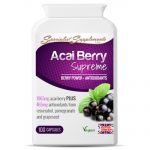
Acai Berry Tablets
Sale!£16.99£13.99 Add to basket -
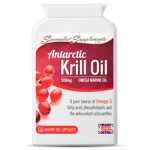
Antarctic Krill Oil Capsules
Sale!£16.99£15.99 Add to basket -
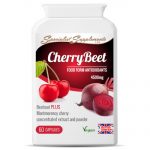
Cherrybeet – Cherry Beetroot tablets
Sale!£13.99£12.99 Add to basket -
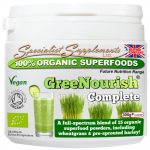
GreeNourish complete organic nutrition powder
Sale!£22.99£19.99 Add to basket -
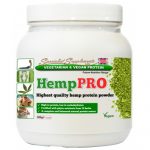
HempPRO hemp protein powder
Sale!£16.50£15.99 Add to basket -
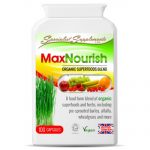
MaxNourish organic whole food supplement capsules
Sale!£16.99£15.99 Add to basket -
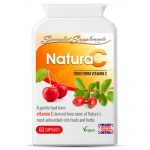
Natural vitamin c supplement capsules
£11.99 Add to basket -
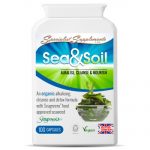
Sea and Soil organic detox tablets
Sale!£18.98£17.99 Add to basket
Showing all 8 results







